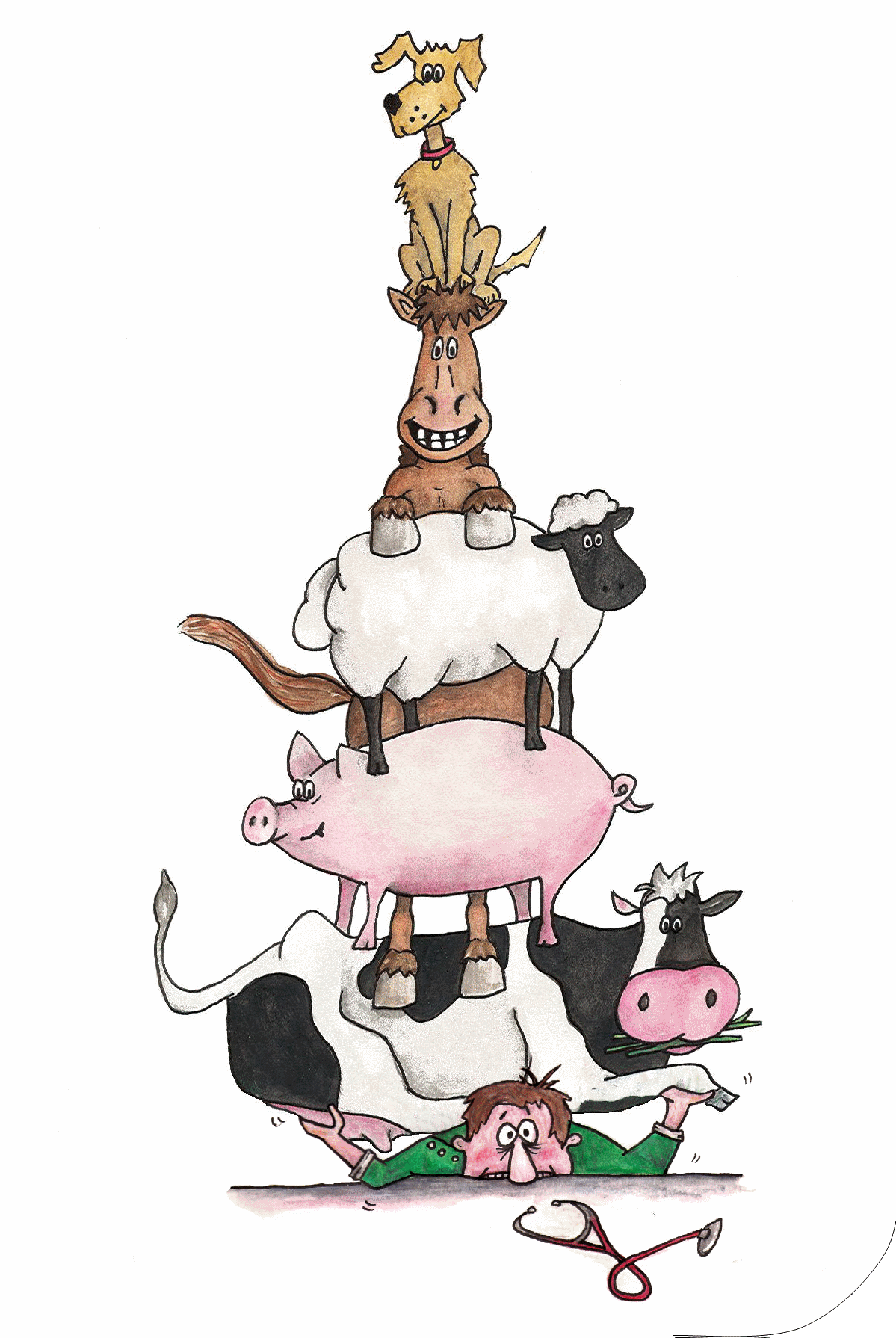New Year, New Job? Interview Technique
Pauline Aitken - 10/02/2013

Interview Technique - Promoting Yourself Effectively
The Purpose of Interviews
An interview is a two way communication process in which both the employer (the practice) and the applicant (you) can assess each other for a common “fit” and mutual benefits.
Remember the employer will have key requirements – you need to know what they are if you are to present yourself as a solution. Not only that; you also want to know whether or not this particular practice and role are right for you! The practice first and foremost wants a solution to their problem and is looking for someone who: has the skills and aptitude to meet their performance expectations, is motivated to work within their practice, can fit into their existing team and culture, can add value to the practice and who is affordable.
On the other hand you are looking to ensure that: the role, working environment, working conditions, people, values & ethics, meet your requirements, that the role will utilise and develop your skills and that the salary package meets your expectations.
Preparing for Interviews
The importance of preparation...
-
Preparation is the single most important element determining interview performance.
-
Remember you will be competing against people with similar qualifications, skills and experience and therefore you need to differentiate yourself in order to stand out.
-
Know the practice, their needs and their culture and think about the benefits you can offer and promote yourself in a way that sells your key benefits.
-
The principle reason candidates are unsuccessful at interview is the lack of preparation. You are making a life changing decision – invest the time to get it right – you only get one chance at each interview.
-
Remember interviews are unnatural situations – it is likely that you will be nervous before and even during the interview, however preparing adequately, will allow you to feel calmer and more confident.
Preparation falls into several categories:-
- Researching the Practice – enables you to make a good impression and helps you make an informed decision as to whether the practice would be the right fit for you.
- Understanding the role and your fit to it – will the role fully utilise, challenge and develop your skills and will the role enable you to meet your longer term career goals?
- Planning how you will manage the interview – anticipating and managing questions, ensuring you communicate your key benefits, differentiating yourself from others, ensuring you receive the information you wish to gain from the employer.
- Logistics – managing the practicalities of attending interviews and ensuring that your personal presentation is of the highest standard.
a. Researching the Practice
Research the practice to find out as much as you can in the way of:
- Size – number of vets and ratio of vet nurses, receptionists and additional staff?
- Practice Type – % of small, Large and Equine work, caseloads volume and types, Certificate holders, specialist areas?
- Tier status – 1st opinion, referral, training practice or hospital status etc?
- Environment - building type, facilities, equipment, alternative therapies – determines ability to work up cases
- Culture – practice values & ethics, people and personalities, are they forward thinking, do they actively encourage and support CPD?
- Reputation – how are they perceived, are they known for any specialism?
- Competitors - who are their key competitors and where are they situated?
- Interviewer - if possible find out about the interviewer (the decision maker)
- Research the role - what are they looking for, what specialism or interests exist within the current team, what role would you fulfil and how would you fit within the existing team, what areas would they like to strengthen (medicine, surgery, orthopaedics, exotics etc) – identify and match your skills and the benefits you could deliver to the practice
You will impress an interviewer with up to date knowledge on their practice as this also gives the impression of interest, however you will also need this information to make a judgement on the practice and whether it is right for you!
There are a variety of ways to research the practice:-
- People who work for the practice – get “inside” information
- Network with people you know, as they will have other contacts who may know someone or something about the practice
- Partner /owner vet and research them to find articles, biographies, papers written by them etc as may provide some background information
- Vendors – suppliers to the practice, talk to their employees and check their websites as like minded people do business together - may gain some additional inside information
- Internet – visit their website and other veterinary and supplier sites
- Practice Literature
- Veterinary Journals for possible articles, awards etc
- Congress, CPD events - again may find someone who knows something about the practice
b. Understanding the role and your fit to it... you need to think "what is the employer really looking for"?
Invest time to identify what the employer is really looking for – what are the essential skills and what are the desirable skills – read between the lines of the advertisement and the job description - what are they actually looking for?
The main elements are :-
- Knowledge, skills and experience
- Aptitude
- Style (how you relate to people: colleagues, nurses, staff and pet owners)
- Motivation (the energy with which you approach the role )
- If a recruitment agency is managing the vacancy ask for as much information as possible – they may recruit for the employer on an ongoing bases and have a good understanding of the attributes the employer is looking for
Your fit to the role
- Review the job advert and identify your key marketable skills
- Review your skills and experience and select most relevant to the role requirements
- Review you CV – what skills have you highlighted, what key selling messages did you use?
- Review all information you have on the role and identify where your skills match – highlight them and prioritise them and think of practical examples to demonstrate them
- Identify any gaps between your skills and those the employer is looking for and enhance your knowledge through revision and research.
c. Planning how you will manage the interview
Preparing Key Marketing Messages – preparing marketing messages can help you communicate more effectively who you are, the key skills you possess and the benefits you could deliver.
- You need to be able to provide the interviewer with the evidence of your skills and experience and more importantly how the practice could benefit by the contribution you could make.
- Prepare a Personal Summary: a 30 second synopsis of: who you are, your key abilities and the areas in which you would want to pursue your career. Use positive language and practice the statement – it should be sharp, short and have impact.
- Career Overview: This is a summary of your career to date. Highlight especially the practical skills gained during vet school placements, refresh yourself on your placements: who they were with, size of practice, equipment used, time spent with them, medical & surgical cases, emphasise what you have done on your own, have assisted with and purely observed. Where you have gained good experience add numbers to emphasis your experience i.e 10 castrates etc. Highlight interesting and more complicated cases you been involved with – all adds to your portfolio of experience and helps differentiate you from other graduates. Ensure you cover your most relevant experience in more depth i.e. if the practice does not do exotics - there is no point emphasising your exotics experience as this will only create an unnecessary negative impact.
Provide the information in chronological order:
- Divide your career into specific periods
- Spend more time on recent or most relevant experiences
- Use action orientated language to convey your achievements
- Modulate your voice and use body language to emphasise your points and express your passion and interest
- Keep the listener engaged and don’t ramble
- Identify your strengths - Strengths are where you could provide substantial benefits and add value to a prospective practice
- Use you key strengths to differentiate you from your competition
Preparing questions to increase knowledge...
It is important for you to determine as much information as possible about the employer and role prior to interview but also at the interview.
Interviewers may provide additional information during the interview; however, you should ask questions to ensure that you develop a good understanding of the role and its requirements.
A Sample of Relevant Questions asked by candidates
- Why has this vacancy arisen? ( tells you if replacement, expansion etc)
- What are the key responsibilities of the role?
- How will this role integrate with the rest of the team?
- How is a “normal” day structured?
- How much time will you spend operating, consulting and carrying out diagnostics?
- What is the % of consults to ops within the practice?
- What skills and experience will the successful candidate posses?
- What support will be available for a graduate and do they have a graduate programme currently in place?
- Do they have specialists and certificate holders and how would that impact on your ability “to have a go”?
- What are the key challenges facing the practice over the next 12 months?
- What career progression and development opportunities will be available?
- When will you hear the outcome of the interview?
It is a good idea to show that you have researched the practice at this point by introducing a fact that you have recently read in a newspaper or on the internet, for example: the practice is expanding, been awarded a tier status, uses state of the art equipment, etc
Finally – you should summarise why you think you should be considered for the role – make sure that the information is relevant – you want to leave them with a positive impression – quickly re-count your key skills and achievements – only the ones that match what they are looking for.
d. Logistics
You will need basic information about the interview arrangements...the interview, process and duration
- Write down the interviewers names and positions
- Ask for details about the interview – how long the interview will take and the type of assessment you can expect (will they expect you to carry out a consult or even a routine op etc)
- Remember, where appropriate, to confirm your attendance
...getting to the interview
- Gain details of where and when the interview is to be held and directions (confirm location especially where practice has multiple branches)
- Where you should report to on arrival and who you should ask for
- Plan your route – ask about travelling constraints if you are not local, public transport routes, trains and buses, car parking facilities, taxi costs from stations etc
- Arrange transport or overnight accommodation where required
...take with you
- An interview folder. It should contain a few copies of your CV, qualification & CPD certificates, written references, some reminders for yourself about your key skills and your goals, a copy of the job description, a pen and some paper to make notes before and after the interview and your list of questions. You should also bring with you a note of the names of the people you are meeting, their position and the practice address with directions and practice contact number
- Reading glasses, if you wear them
- Essential medication if you require this (especially if you are diabetic – plan accordingly)
- You may also want to take tissues and mints
Personal Attire
You really need to make an instant positive impression!!
- Assess the dress code of the employer prior to the interview
- Always dress smartly and wear attire that is conservative
- Ideally if appropriate wear a smart suit
- Get a haircut
- Wear clean and polished shoes
- Don’t wear too much jewellery – especially if you are a man
- Ensure that your personal hygiene is of a high standard
- Ladies – do not wear bright nail polish – keep it conservative, keep your make-up professional – you need to appear business like, do not wear overpowering perfume.
Making an Impression
First impressions are critical...you have just 30 seconds to make an impression – make sure it’s the right one!
It’s not what you say – it’s the way that you say it...
Overall impression is made on three key aspects – appearance and conduct (presentation), how communication is delivered (tone, animation, body language and content - what you actually say). Here’s how the impact of an overall impression is assessed:-
- 55% is visual and relates to your appearance and presentation/body language
- 38% is about how you deliver your communication – voice, animation, tone
- 7% is content specific
Appearance and Personal Presentation
Take a good look at your personal presentation. Do you look smart, polished, professional and confident? Are you making the very best of yourself? If not invest time and money on improving your appearance – it’s critical that you gain maximum impact from that 55% impression ratio. Looking good will help your self-confidence which, in turn will help you deliver your communication more effectively.
Body Language...an essential part of personal presentation!
- Always offer a firm handshake and greet with confidence – maintain eye contact, smile and introduce yourself to each person (know how to pronounce their names)
- Confident people have positive posture – don’t slouch or stoop
- Maintain good eye contact with the interviewer/s
- Provide visual affirmation – nod your head – show that you are listening
- Don’t fidget
- Remember part of the interview will be assessing how you interact with people (your client skills) therefore your communication skills and body language need to be confident and positive
- Thank the interviewers. Shake their hands individually and thank each by name.
Effective Communication
The style in which you communicate is more important than what you actually say believe it or not. Interviewers need to be convinced therefore you need to be effective in delivering your communication:-
- Try and reflect their language
- Communicate concisely – don’t ramble
- Get to the point – interviewers dislike wasting time on candidates who don’t answer their questions or talk about irrelevant facts
- Use positive, action orientated language such as developed, increased, improved – not limiting language such as only, solely or unfortunately.
- Modulate and project your voice – speak up – don’t talk to the floor
- Sound enthusiastic, particularly about the role and the practice you are applying to
- Practise active listening – concentrate on what the interviewer is really asking you and remain alert – they may provide relevant information that you can use later in the interview
- Be attentive. Listen to each question carefully and don’t interrupt. If you aren’t quite sure of what is being asked, politely request that the question be repeated
- Be aware of the interviewers body language – if you ramble the interviewer will become disinterested or impatient – know when to stop talking
Content – make it count
Highlight relevant skills and experience and provide examples of achievements that meet the requirements of the employer – remain focused on the key messages you want to deliver and the practical skills you want to emphasise.
- Don’t get too elaborate – keep to the points Too much information is distracting and can provide reasons for not hiring you. Let the interviewer ask for details – only volunteer more details when it is to sell yourself to what they are looking for
- Don’t talk for more than 3 minutes at a time – it gets very boring for the interviewer
- Use your CV to guide the interviewer – ensure that you emphasise your: Key skills - Medicine, Surgical, Diagnostics, Practical Skills (routine & emergency ) etc, Achievements - Spayed 10 bitches, Castrated 8 dogs, Conducted multiple diagnostic nerve blocks as part of full lameness work ups etc and Benefits you could deliver to the practice - Able to contribute to practice quickly, having conducted over 60 routine operations; Gain client loyalty through excellent communication skills and delivering the highest levels of client and pet care. These examples both ultimately generate revenue for the practice which is the real benefit.
- Identify areas of weakness on your CV and prepare answers to manage them
- Make sure that you can provide evidence to substantiate achievements – remember to use your interview folder as it should contain examples of your achievements
- Ensure that you get across all the key selling messages you intended
- Close the interview with a strong closing statement of your key skills for the job
- Make sure that you offer details of referees – they should be work based – and encourage the interviewer to contact them
Interview Etiquette
Don’t
- Be late
- Use slang language or swear
- Chew gum
- Leave a mobile phone switched on during the interview – keep it off!!
- Crowd the interviewers personal space
- Criticise current or previous practices, colleagues or tutors
Do
- Treat everyone you meet with respect and as potential interviewers ( Receptionists, Employees, Pet Owners etc)
This article was provided by Recruit 4U - Veterinary recruitment specialists and providers of VetGrad.co.uk's FREE CV reading service:






